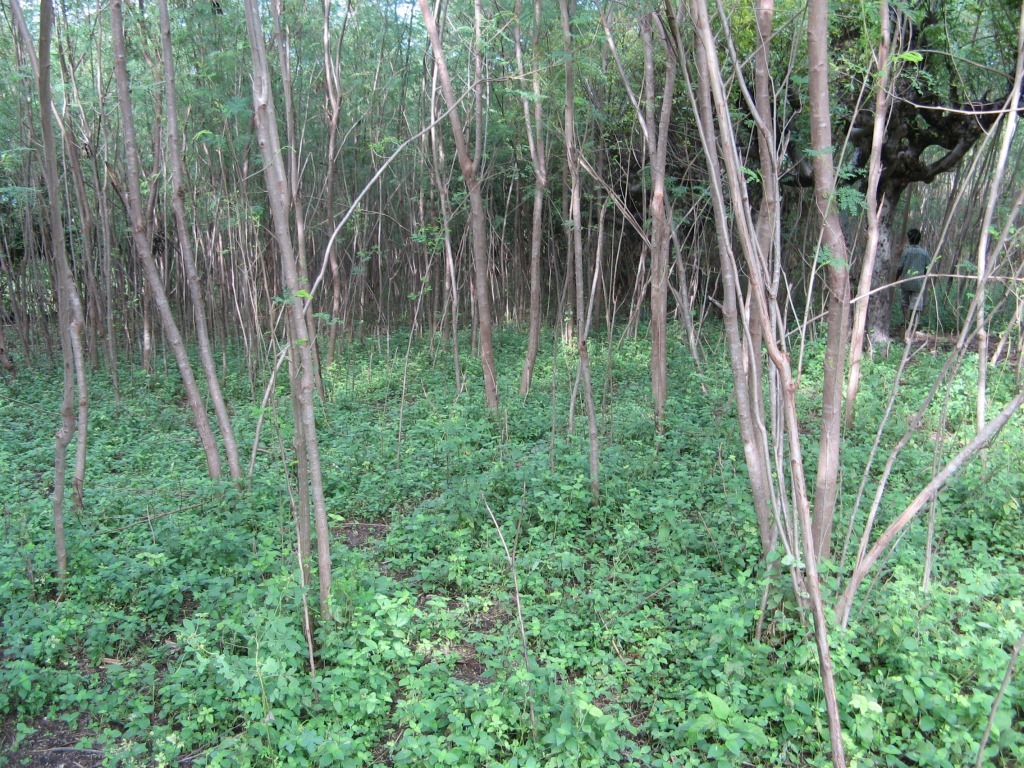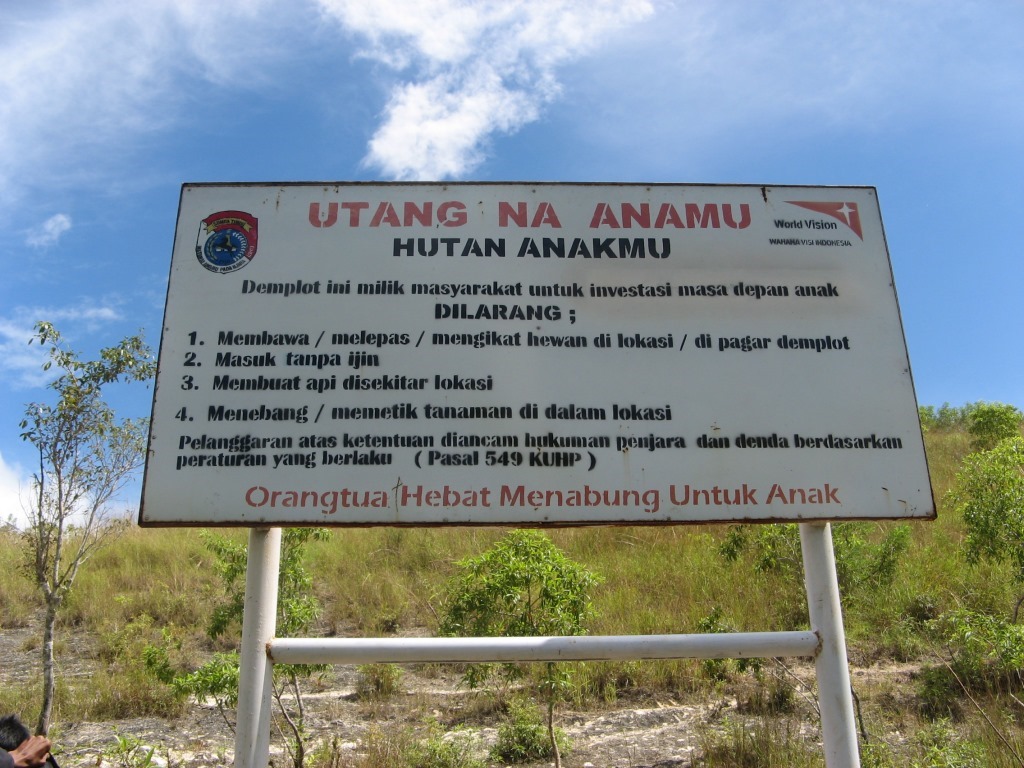
Indonesia food security and revegetation program brings hope and achieves the ‘impossible’
August 17, 2015
Village leaders in Indonesia’s Haharu Sub-district have praised the results of a World Vision program that has boosted revegetation efforts and food security. Several activities are improving education and wellbeing outcomes, and inspiring new hope for the future.
A World Vision program in Indonesia is proving sucessful in helping village communities to improve their natural resource management, mobilise local resources and boost food security.
The project, titled INFOCUS (Increase food Security within the Community through Sustainable Livelihood and Natural Resource Management System), is also encouraging residents of East Sumba to see new possibilities for the future and improve their wellbeing.
World Vision Indonesia began its work in East Sumba in 1998, in response to famine and later expanded its work. The INFOCUS program has been running in the Haharu sub-district, an area encompassing seven villages and more than 6,000 residents, located in the East Sumba Regency within Nusa Tenggara Timur Province.
The program, completed this year, focused on improving local management and protection of natural resources, so that communities could become more self-sufficient and improve food security. Villagers were also empowered to identify and respond to threats such as climate change and environmental damage.
World Vision’s work in East Sumba has included community development, addressing food security issues, and encouraging environmental restoration through Farmer Managed Natural Regeneration (FMNR, also known as Palotang in the project area), agro-forestry, raised bed farming, rainwater harvesting and tree planting.
The community has carried out FMNR activities across 67.95 hectares of land, while 37.2 hectares has been set aside for agro-forestry activities. The INFOCUS project also assisted communities with the development of policies in fire prohibition and livestock management practice.
On one community-owned plot of land, locals have planted seedlings that will provide timber that can be used as construction material or be sold to meet education expenses. The extra trees around the village have also improved the quality of the natural water reservoir.
“In the beginning we really thought that World Vision had gone mad to ask us under the sun for a whole day to do trivial things. We couldn’t comprehend what they wanted from us. We were there simply for the rice they promised us in the end of the activity. We really thought it was crazy and only people without mind asking us to leave our work at home and in the farm to prune wild trees in the land. The land that doesn’t even belong to us. But, it was amazing to see the result after two years. We couldn’t believe that the trees that were nothing could grow and became taller than us. Now we see all the benefits from doing Palotang (a word in the local language to describe FMNR). It is really outstanding to see them growing. Now, we have green land, something that we never dreamed of before. We believe it gives good impact to the environment, more water preserved, less erossion, less risk of floods and strong winds. We are happy and have strong hope of better future for our children.”
Delila K. Wandal, 35 years old, community member in Kalamba

A sign marks a community plot in the village of Napu. It reads “great parents save for their children.” Seedlings planted in the plot will provide timber which can be sold to meet education costs
INFOCUS Program shows that ‘nothing is impossible’
Evaluation of the program shows that community members have felt a strong sense of belonging as they have taken part in the project and developed understanding about how to improve their quality of life. Participants have also reported other positive outcomes, including decreasing rates of poverty, improved child feeding practices and greater hope for the future.
Wungu Village leader N.A Kalendi says the results of the INFOCUS project have been very surprising.
“Who would think that in a very hot and dry place like Wunga, people could see a forest.
“It was impossible. But now we have to open our eyes very wide to finally see and be proud that it is possible. We do have trees taller than us, giving us green shade in the village.
“It gives us hope that one day our village can be prosperous and we can live a great life in Wunga. INFOCUS project was the one that made that possible.”
“For the future of our children, nothing is impossible really!”
Kalamba Village Leader Lodo Hambamay says there have been several benefits from the FMNR and agro-forestry projects in his area.
“The number of fences built and the quality of the soil has increased and there is less erosion. Soil quality has improved from the benefits of tree leaves. We have strictly prohibited burning.
We have to keep telling the negative impacts (of burning). (We) must have the awareness!”
